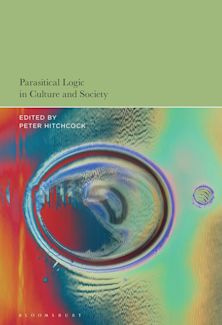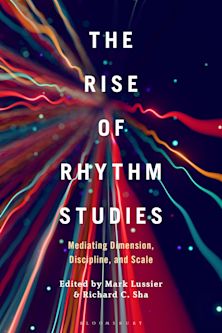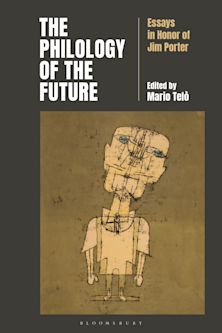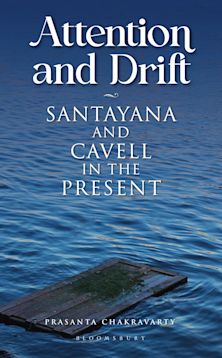- Home
- ACADEMIC
- Literary Studies
- Literary Theory
- The Human Image in Helmuth Plessner, Pierre Bourdieu, and Psychocentric Culture
The Human Image in Helmuth Plessner, Pierre Bourdieu, and Psychocentric Culture
The Human Image in Helmuth Plessner, Pierre Bourdieu, and Psychocentric Culture
This product is usually dispatched within 2-4 weeks
- Delivery and returns info
-
Flat rate of $10.00 for shipping anywhere in Australia
You must sign in to add this item to your wishlist. Please sign in or create an account
Description
In The Human Image in Helmuth Plessner, Pierre Bourdieu, and Psychocentric Culture, Isaac E. Catt offers a unique criticism of naturalistic reductions of humans to animals, to neuro substrates and to DNA. Catt explores a new interpretation of Plessner and Bourdieu, revealing the combinatory logic of semiotic phenomenology in both and their common problematic of communication. Through an emergent synthesis of philosophical anthropology and communicology, this book provides a basis for criticism of the failed mechanistic medical model in psychiatry, a fresh argument for reconceptualizing psychiatry as a human science, and for construction of a new ecological image of communicative being. Throughout the book, alternative attempts to transcend dualisms such as cybernetics, anti-anthropocentrism, and biosemiotics are revealed to risk reification of the very objects of their analysis. Scholars of communication, semiotics, philosophy, psychiatry, cultural studies, mental distress, and psychology will find this book of particular interest.
Table of Contents
Acknowledgments
Introduction
Part One: Disembodied Images of the Human Person
Chapter 1: Problematics of Communication in Signifying the Human Person
Chapter 2: A Crisis of Communication in the Human Sciences Then and Now
Chapter 3: Where It Hurts: Pathologizing Everyday Life in Psychocentric Culture
Part Two: Embodied Images of the Human Person
Chapter 4: Helmuth Plessner's Image of Embodied Communication
Chapter 5: Constructing a New Image of the Human Person: Bourdieu and Plessner on Psychological Precarity
Chapter 6: Being Human in Communication
Bibliography
About the Author
Product details
| Published | 09 Feb 2023 |
|---|---|
| Format | Hardback |
| Edition | 1st |
| Extent | 234 |
| ISBN | 9781666918557 |
| Imprint | Lexington Books |
| Dimensions | 231 x 160 mm |
| Publisher | Bloomsbury Publishing |
About the contributors
Reviews
-
This book is a major contribution to our current understanding of the practical combination of philosophy and communicology as an applied human science. An exceptionally well researched critique of the regrettable consilience and hypostatization found in post-positive '“cognitive science,”'especially the counterfeit and misguided beliefs that (1) psychopathology is an organic '“brain”' problem and that (2) '“Big Pharma”' provides the solution of psychopharmacology. An excellent introduction to the synergism of phenomenology, semiotics, and communication science grounded in the discourse model of human embodied speaking and listening. A '“must read”' for students of applied communication and philosophy. Best of all, the author gives a readable explication of the failed machine metaphor of '“information theory”' in computers, and, replaces it with the practical experience of '“communication theory”' as the living voice of human culture.”
Richard L. Lanigan, International Communicology Institute
-
“Current psychocentric culture is diagnosed by Isaac E. Catt as missing something vital, for it views humans as organisms rather than persons. The treatment he proposes consists in focusing on meaning as a communication problem of lived experience and conceiving psychiatry, while still inclusive of the brain, as a human science. By synthesizing the ideas of Plessner and Bourdieu with the American philosophy of pragmatism, he develops a semiotic phenomenological framework that presents a revitalized---vital and viable--image of the human person. To that end, particular emphases are placed not only on ontology and epistemology, but also logic, ethics, and aesthetics. Carefully researched, theoretically grounded, well-timed, and well-written.”
Igor Klyukanov, Eastern Washington University
-
“The concept of the “human” has undergone an unfortunate reduction over the course of the last several decades—a reduction that has, through various emerging discourses, increasingly come to limit consciousness and embodied subjectivity to matters of biological mechanics or algorithms of cognitive choice. Isaac E. Catt’s The Human Image in Helmuth Plessner, Pierre Bourdieu, and Psychocentric Culture offers a profound and timely response to these narrow frameworks of human life, meaning, culture, and engagement. Catt’s work establishes a new set of conceptual foundations for what it means to experience “crisis”—as well as raising fresh questions about how we should approach the precarity and problems of personhood in an era of technological and global transformation. This book constitutes a vital turning point for scholarship both in psychological theory and in the philosophy of human communication.”
Frank J. Macke, Mercer University

ONLINE RESOURCES
Bloomsbury Collections
This book is available on Bloomsbury Collections where your library has access.



































